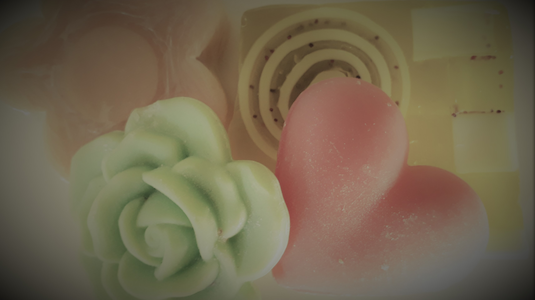Clean and ecological hair wash
Stiftung Warentest tested solid shampoos and hair soaps, including ten products available in Austria. Hair soaps and solid shampoos do not have to shy away from comparison with liquid shampoos. Six out of ten products tested received a good overall rating.
Life cycle assessment
Hair soaps and solid shampoos can now be found not only in drugstores, but also in general stores. The products have reached the masses. But how do they compare with conventional shampoos in terms of their eco-balance?
The life cycle assessment of a product includes production, packaging, transportation and disposal. This shows that the production of solid shampoos requires less energy per hair wash than liquid shampoos. Solid shampoos also pollute waste water less than liquid products, as they do not require preservatives. In terms of packaging, solid shampoos and soaps are also more environmentally friendly as they are available in recycled cardboard or paper. As they also take up less space during transportation than liquid shampoos, they also perform better here.
Water consumption as a key factor
When it comes to washing itself, there are no differences in terms of the eco-balance - as water consumption and the water heating required for this account for the largest proportion. This is independent of the type of shampoo used. Incidentally, the test showed that professionals are more economical: Hairdressers in the test, for example, managed on average with only half as much water as the test subjects in the self-test.
Ecolabel for rinse-off cosmetic products
The Austrian Ecolabel for rinse-off cosmetic products (which is largely harmonized with the criteria of the European Ecolabel) also specifies in its criteria which requirements products such as soaps and shampoos must meet in order to be certified. Unlike detergents and cleaning agents, there are hardly any legal requirements for reducing environmental impact in the cosmetics sector. Neither is the biodegradability of washing-active substances prescribed, nor do environmentally hazardous products have to be labeled in accordance with the rules of chemicals legislation. The Austrian and European Ecolabels address this gap, which is why the criteria focus in particular on the biodegradability of ingredients, the ban on critical ingredients and the reduction of fragrances and perfumes. In addition, packaging criteria ensure a recyclable design, regulate the use of materials and reduce the resources required for packaging.
Tips for ecological hair washing
- Save water: Turning off the tap while shampooing saved up to ten liters of water in the test. Water-saving taps with the Austrian Ecolabel also help to reduce water consumption by around half.
- Don't rinse your hair with hot water: if you only rinse your hair with water at 36 degrees instead of 43 degrees, you can save almost 20 percent energy.
- Use less shampoo - if you dose like the pros, you can reduce the environmental impact per hair wash by almost half.
The test results are available in detail at www.konsument.at and in the test magazine KONSUMENT.
